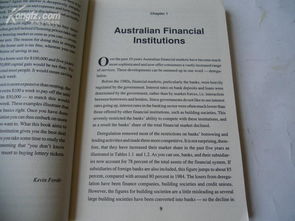Understanding Puts
 To make money off puts, it’s crucial to first understand what a put option is. A put option is a financial contract that gives the owner the right, but not the obligation, to sell a specific amount of an underlying asset (like a stock, bond, commodity, etc.) at a predetermined price (known as the strike price) within a specified period of time.
To make money off puts, it’s crucial to first understand what a put option is. A put option is a financial contract that gives the owner the right, but not the obligation, to sell a specific amount of an underlying asset (like a stock, bond, commodity, etc.) at a predetermined price (known as the strike price) within a specified period of time.
How Puts Work
 When you purchase a put option, you’re essentially betting that the price of the underlying asset will fall. If the price does fall below the strike price before the option expires, you can exercise your right to sell the asset at the strike price, thereby making a profit. If the price doesn’t fall, the option expires worthless, and you lose the premium you paid for it.
When you purchase a put option, you’re essentially betting that the price of the underlying asset will fall. If the price does fall below the strike price before the option expires, you can exercise your right to sell the asset at the strike price, thereby making a profit. If the price doesn’t fall, the option expires worthless, and you lose the premium you paid for it.
Strategies to Make Money Off Puts
 There are several strategies you can use to make money off puts. Here are some of the most popular ones:
There are several strategies you can use to make money off puts. Here are some of the most popular ones:
1. Buying Puts
The most straightforward way to make money off puts is to buy them when you believe the price of the underlying asset will fall. This strategy is known as “going long” on puts. To maximize your profit, you’ll want to buy puts with a high implied volatility and a strike price that is close to the current market price of the underlying asset.
2. Selling Puts
Another way to make money off puts is to sell them. This strategy is known as “writing” puts. By selling puts, you receive the premium upfront, but you’re also obligated to buy the underlying asset at the strike price if the option is exercised. This strategy can be profitable if the price of the underlying asset remains above the strike price until expiration.
3. Covered Calls
A covered call is a strategy that involves owning the underlying asset and selling call options on it. While this strategy is primarily used to generate income, it can also be used to hedge against potential losses in the value of the underlying asset. To make money off puts using a covered call, you would sell a put option on the underlying asset and simultaneously buy a call option with the same strike price and expiration date.
Calculating Potential Profits
To calculate potential profits from buying or selling puts, you can use the following formula:
| Strategy | Profit Formula |
|---|---|
| Buying Puts | Profit = Strike Price – Underlying Asset Price – Premium Paid |
| Selling Puts | Profit = Premium Received – (Strike Price – Underlying Asset Price) |
Risks and Considerations
While making money off puts can be profitable, it’s important to be aware of the risks involved:
1. Market Risk
The price of the underlying asset can be unpredictable, and if it rises significantly, your put options may expire worthless.
2. Time Decay
Put options lose value as they get closer to expiration. This is known as time decay, and it can erode your profits if you’re not careful.
3. Volatility Risk
High implied volatility can lead to higher premiums, but it also increases the likelihood of the underlying asset’s price moving significantly, which can be both good and bad.
Conclusion
Making money off puts requires a solid understanding of the market, the underlying asset, and the strategies involved. By carefully analyzing the risks and rewards, you can develop a strategy that works for you. Remember, successful trading is about discipline and patience, so be sure to do your research and stay informed.


